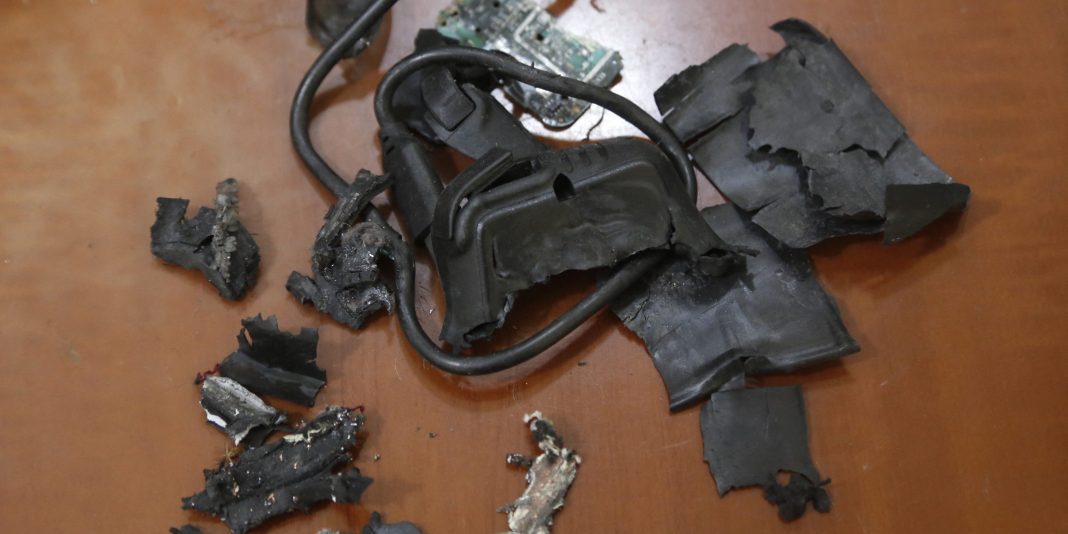In the shadow of escalating violence in Lebanon, the plight of U.S. citizens caught in the turmoil has become increasingly dire. Hana Bechara, a dual citizen of the U.S. and Lebanon, exemplifies the struggles faced by many. After witnessing the devastation wrought by Israeli airstrikes—over 80 bombs, including American-made 2,000-pound munitions, fell on residential areas in Beirut—she made the heart-wrenching decision to leave her home. Bechara, who has lived in Lebanon for over a decade, began arranging flights to Miami, where her sisters reside. However, the logistics of her family’s evacuation were fraught with complications; her husband, parents, grandmother, and uncle are not U.S. citizens and require visas to enter the United States.
The situation has been exacerbated by the U.S. government’s vague responses to the crisis. Despite the urgency of Bechara’s situation, the U.S. Embassy in Beirut has offered little more than generic security alerts and a suggestion to contact commercial airlines directly—an impractical recommendation given the limited and costly flight options available. In a recent email, the embassy stated it could not assist her family but promised to help U.S. citizens and their immediate family members leave Lebanon “very soon,” without providing a clear timeline or details on the type of assistance available.
As the airstrikes intensified, Bechara experienced profound anxiety, describing the physical pain and pressure in her chest as a clear signal that her safety was at risk. “My final decision [to leave] was when I realized the pressure on my chest, the pain that I would sometimes feel in my chest is not worth it,” she reflected. This sentiment resonates with many Americans in Lebanon, who feel they are being treated differently than their counterparts in Israel, where the U.S. government has been more proactive in facilitating evacuations.
The stark contrast in responses is evident. Following the October 7 attacks in Israel, the U.S. Embassy in Jerusalem quickly organized charter flights and boat rides for American citizens wishing to leave. In contrast, U.S. citizens in Lebanon have been left to navigate a perilous situation largely on their own. The State Department has acknowledged that not all Americans in Lebanon are seeking to leave, but many, like Bechara, feel abandoned and unsupported.
The humanitarian crisis in Lebanon is severe. Reports indicate that over 1,000 people, including women and children, have died in the recent violence, and approximately one million people—nearly a fifth of the country’s population—have been displaced. The United Nations has appealed for nearly half a billion dollars in humanitarian aid to address the escalating needs of those affected by the conflict.
Historically, the U.S. has demonstrated its capability to evacuate citizens in crisis situations. In 2011, during the unrest in Egypt, the U.S. successfully evacuated over 1,900 Americans within days of the outbreak of violence. Yet, as the situation in Lebanon deteriorates, the lack of a coordinated evacuation plan raises questions about the U.S. government’s commitment to its citizens abroad.
Amy Fallas, another American citizen residing in Beirut, echoes Bechara’s frustrations. Having previously experienced the U.S. government’s support during the 2011 evacuations, she now feels a profound sense of abandonment. “I have absolutely no faith in that anymore,” she lamented, recalling the organized and supportive response she received in 2011. Fallas has witnessed friends and fellow expatriates successfully evacuate with the assistance of their respective governments, while she remains trapped in a country where her own government seems to have turned a blind eye.
The urgency of the situation has prompted calls for action from U.S. lawmakers. Representative Jamaal Bowman has urged the State Department to expedite its evacuation plans, emphasizing the perilous circumstances faced by American citizens in Lebanon. Similarly, Representative Rashida Tlaib has highlighted the struggles of individuals in her district, including a U.S. Marine Corps veteran stranded with his family.
The mixed messages from the U.S. government have left many feeling like second-class citizens. Mai El-Sadany, executive director of the Tahrir Institute for Middle East Policy, criticized the State Department for its inconsistent approach, noting that the U.S. has historically acted decisively to protect its citizens in conflict zones. “The urging of the U.S. embassy for American citizens to figure out a way to evacuate themselves commercially is just very rich considering the facts on the ground,” she stated, highlighting the inherent dangers of navigating a war-torn environment.
As Bechara finally managed to secure a flight for her family, the relief was tempered by anxiety over the uncertain future. Her family’s history is marked by displacement; her father’s family fled Palestine in 1948, and she has now found herself contemplating another move. “Billions of dollars are being spent on weapons. They can afford to support the few of us who


